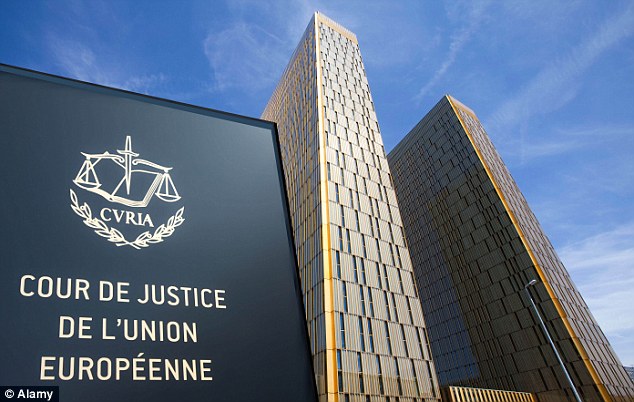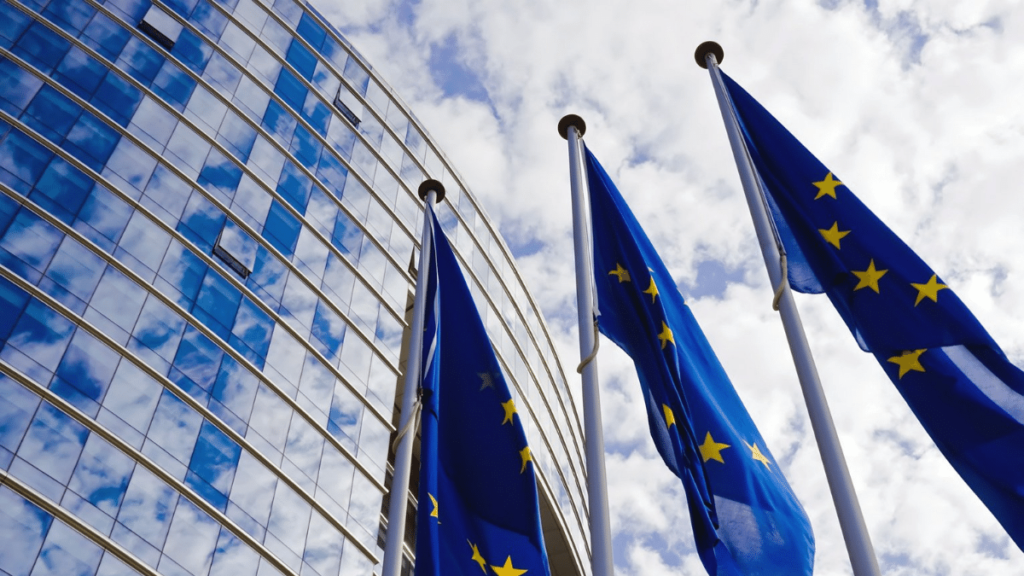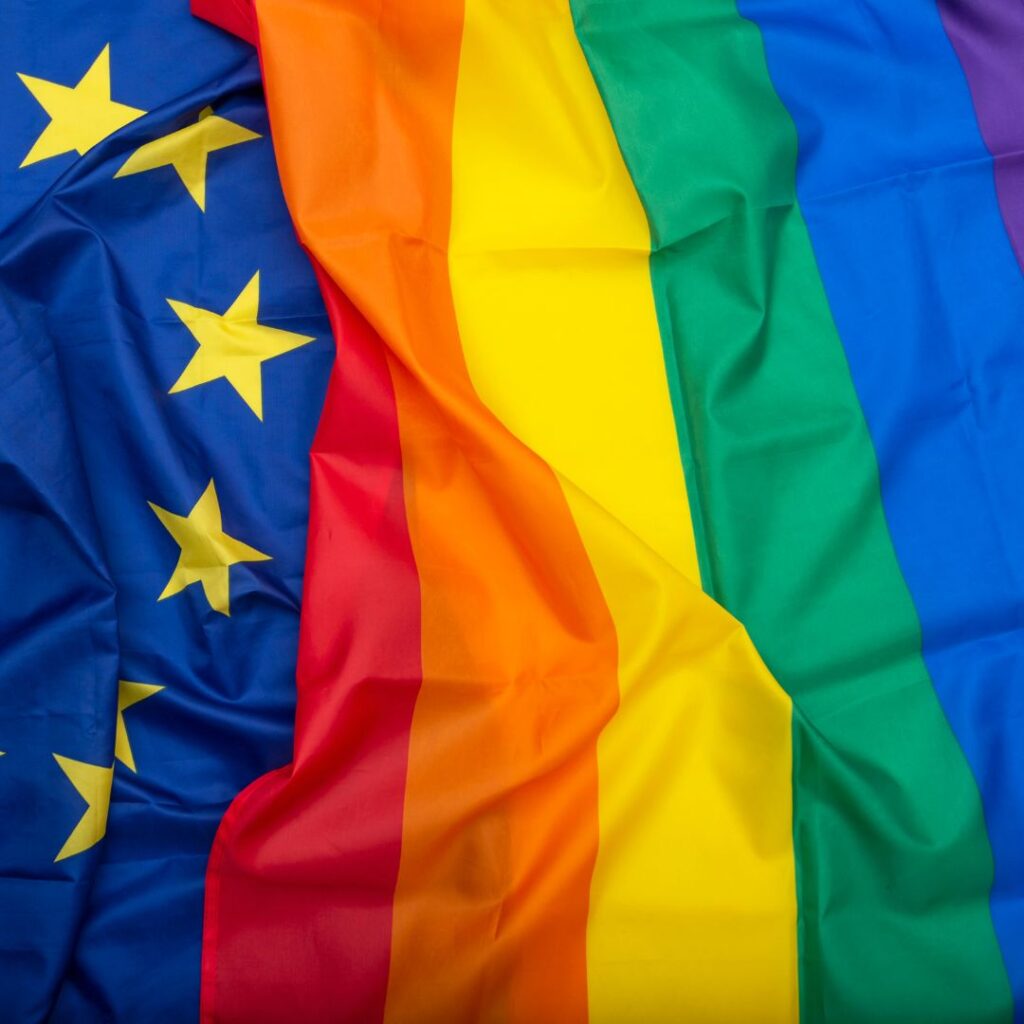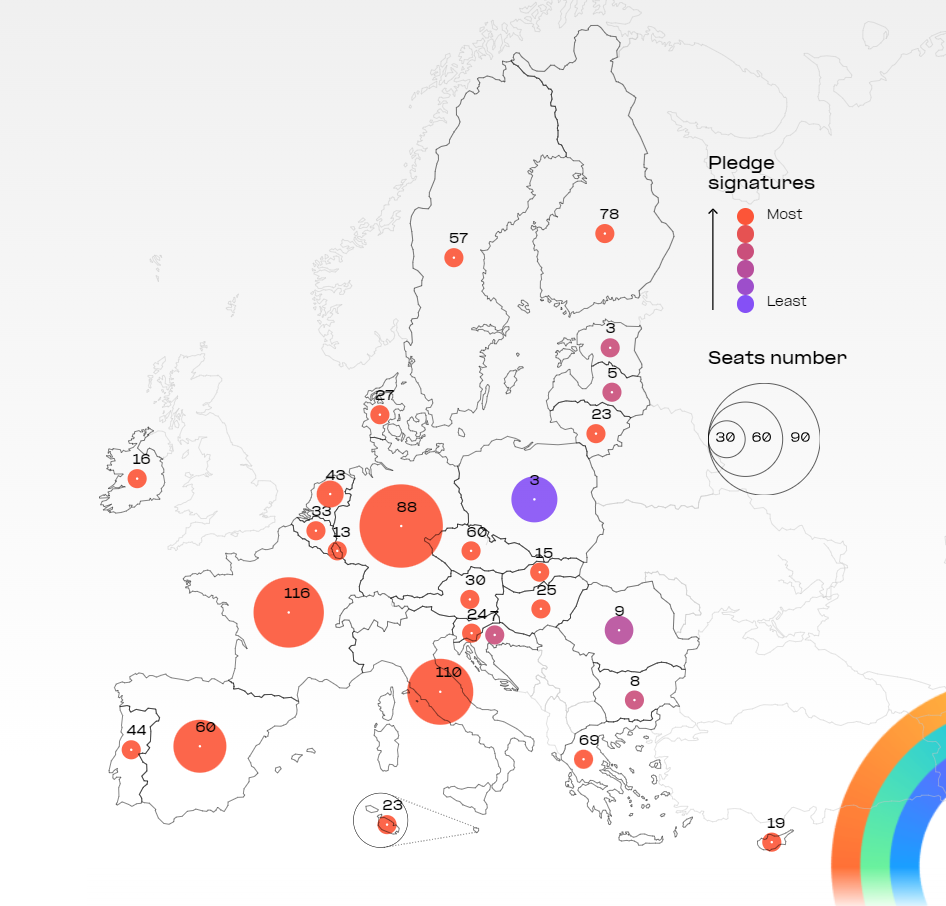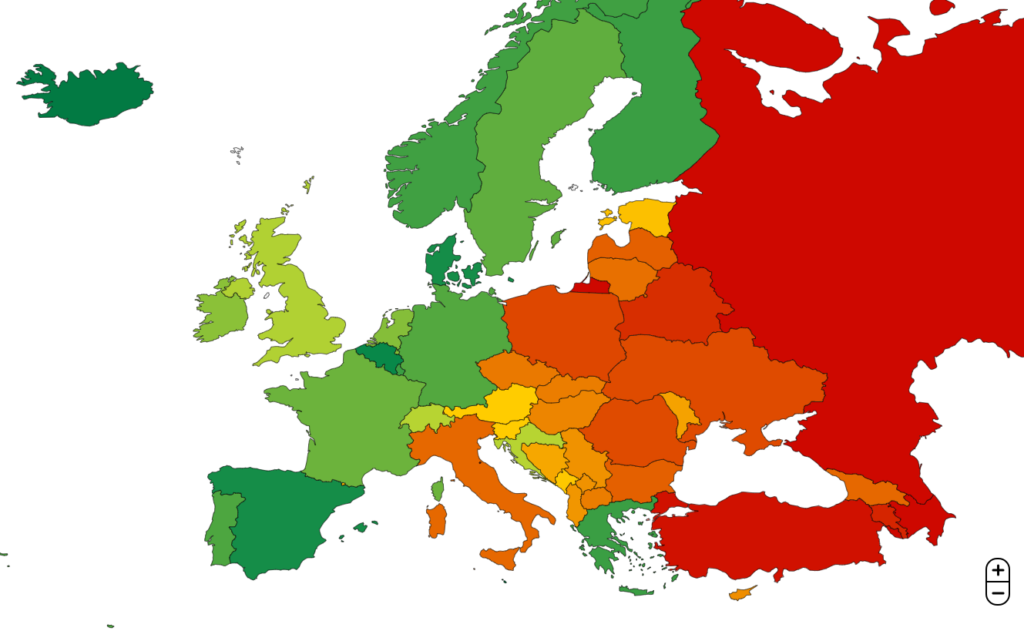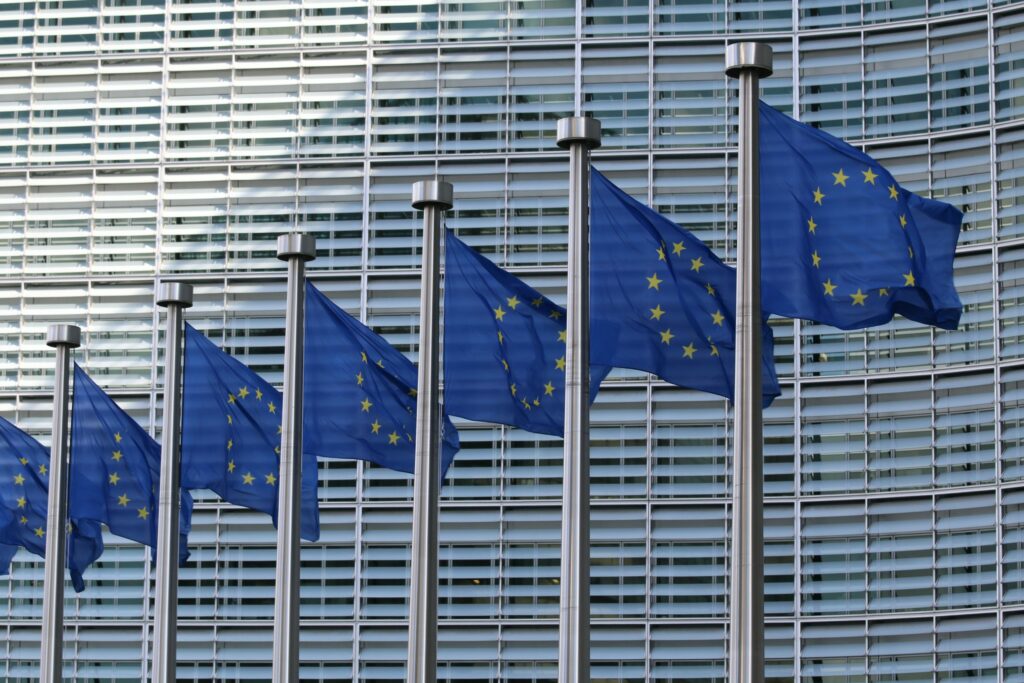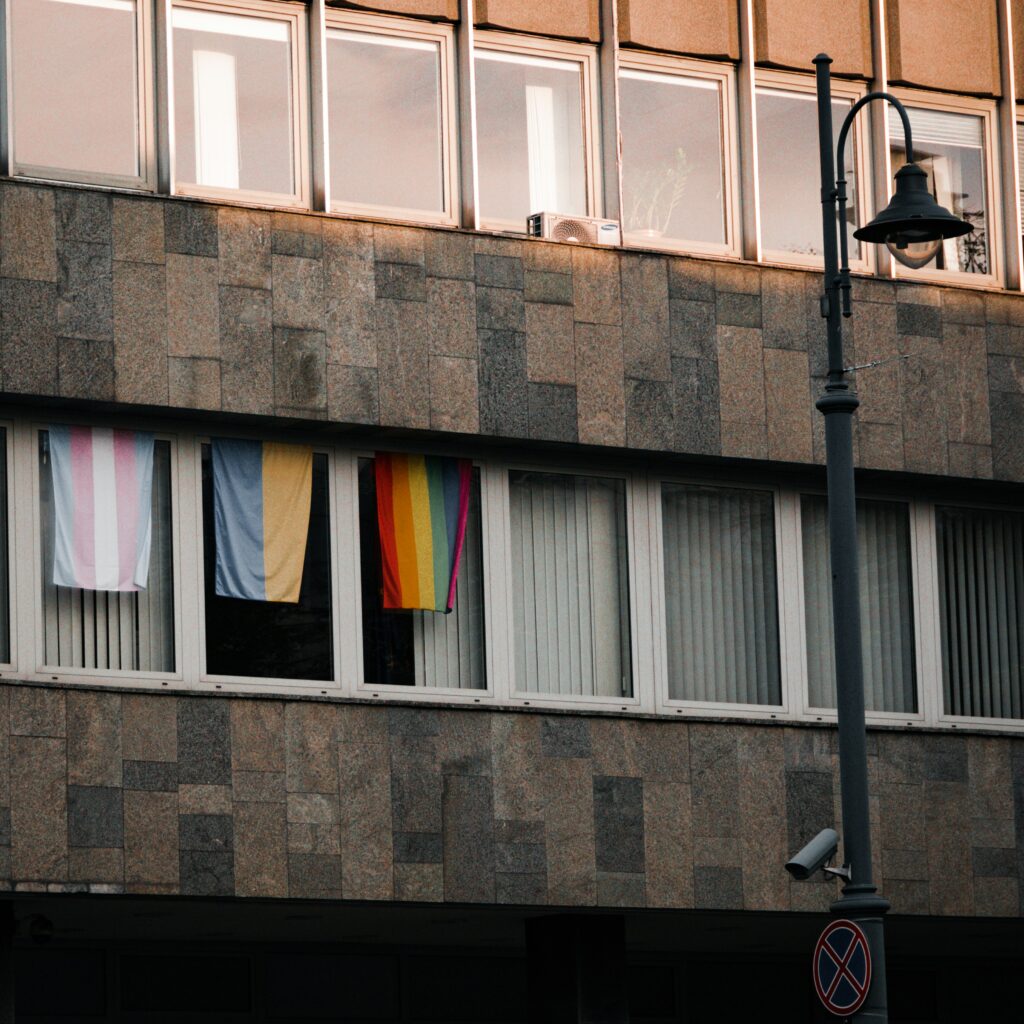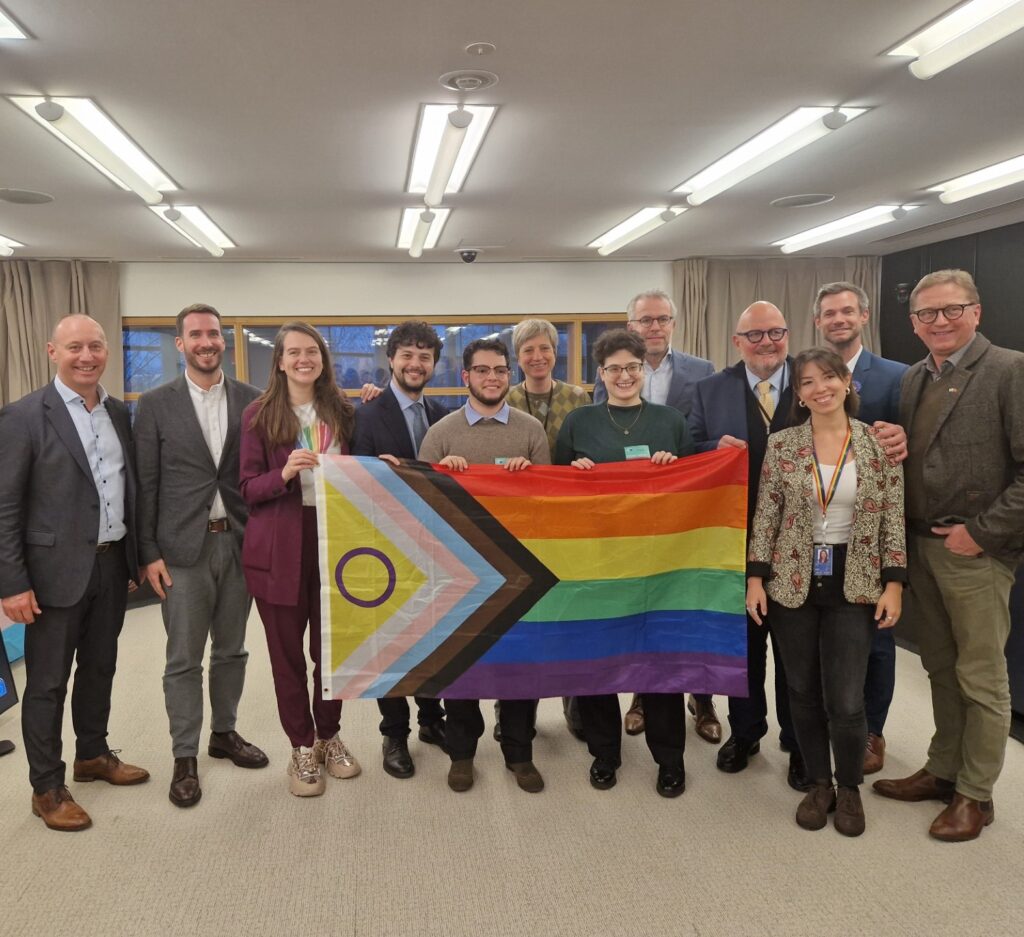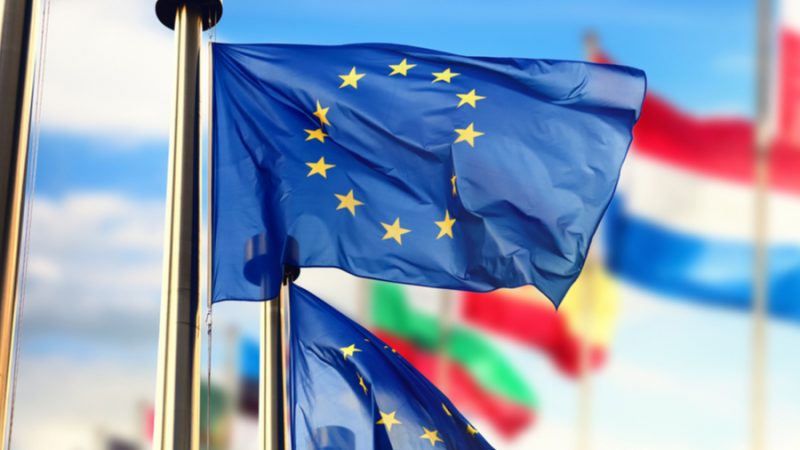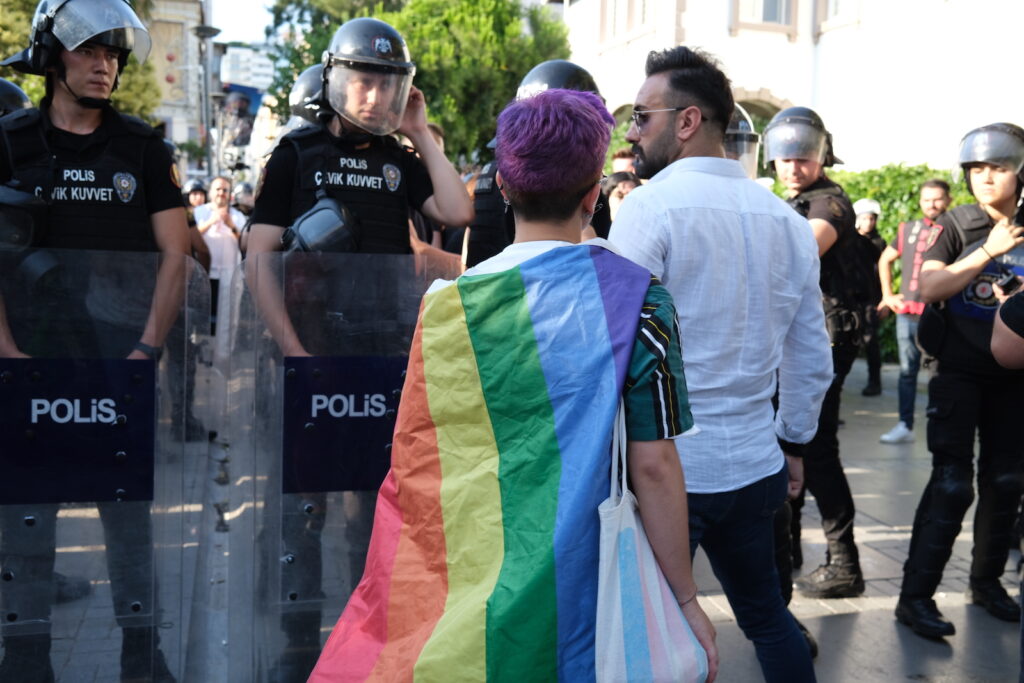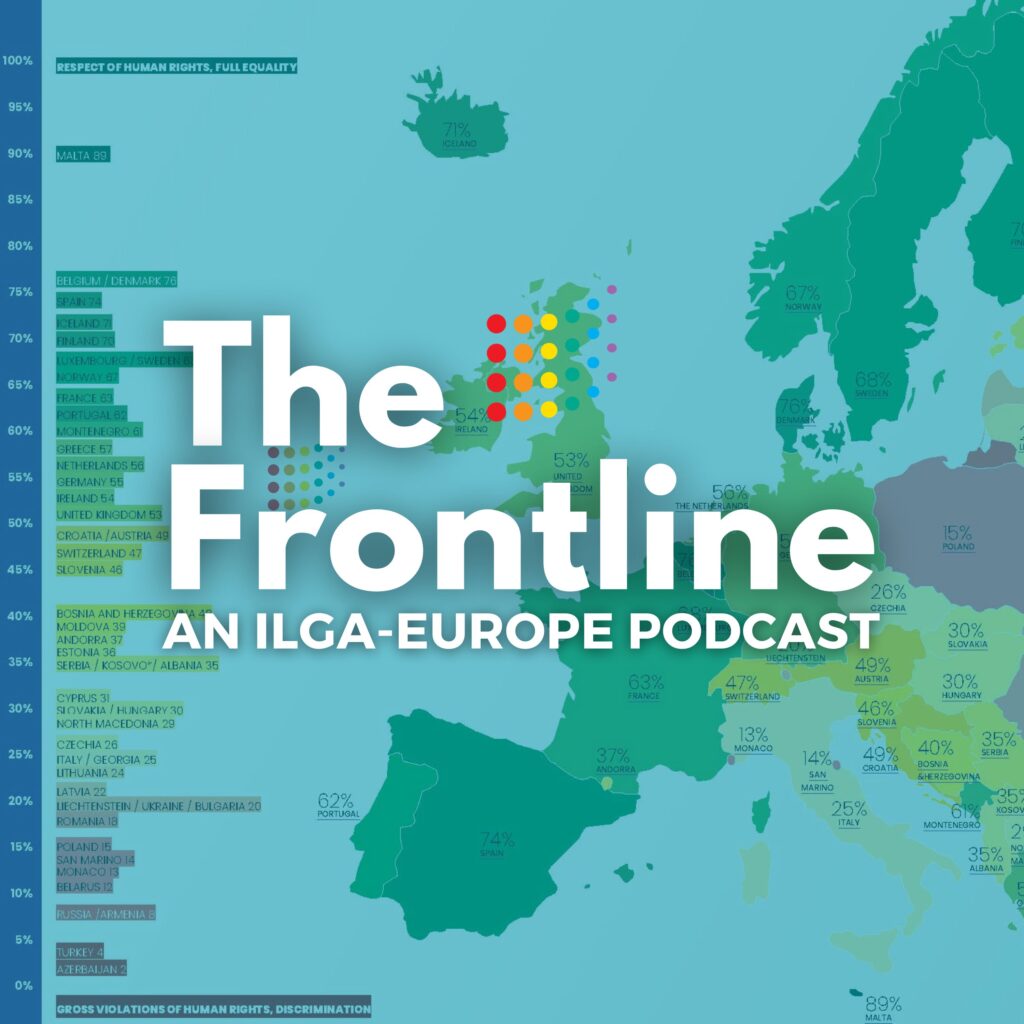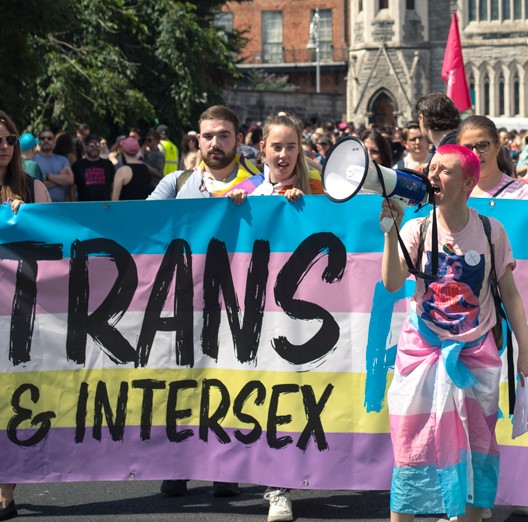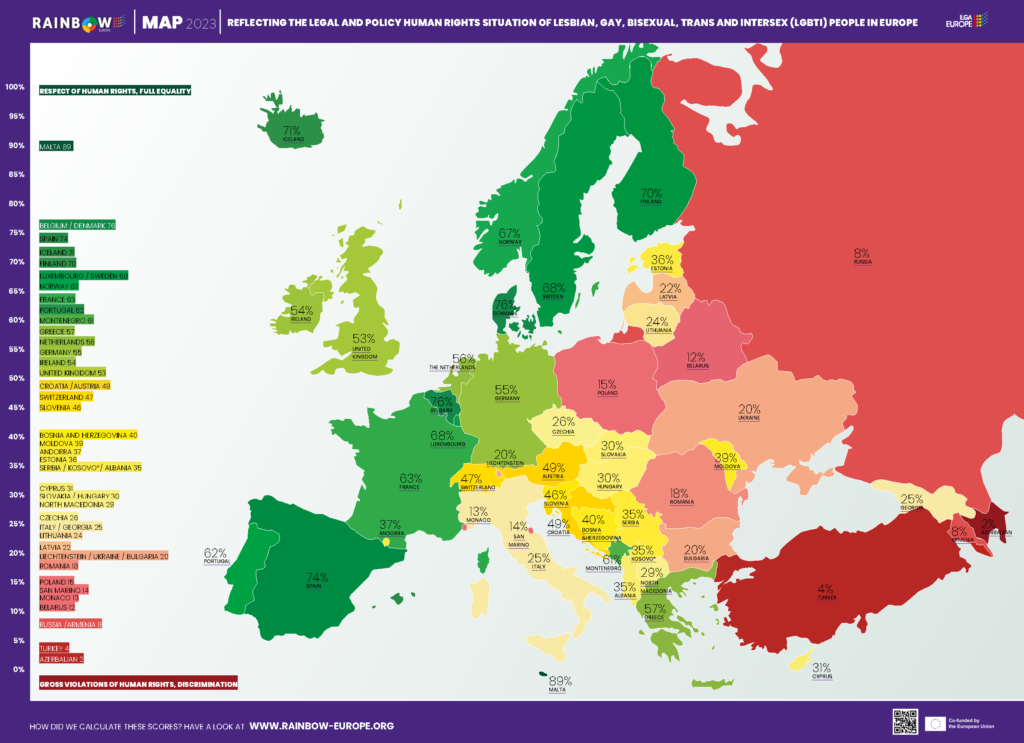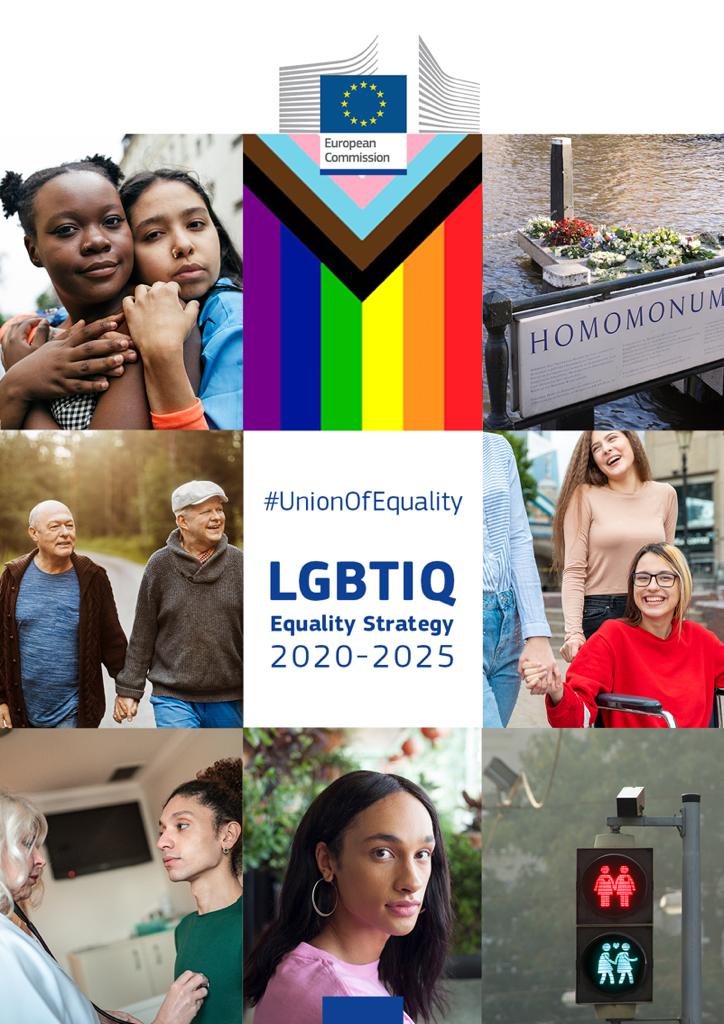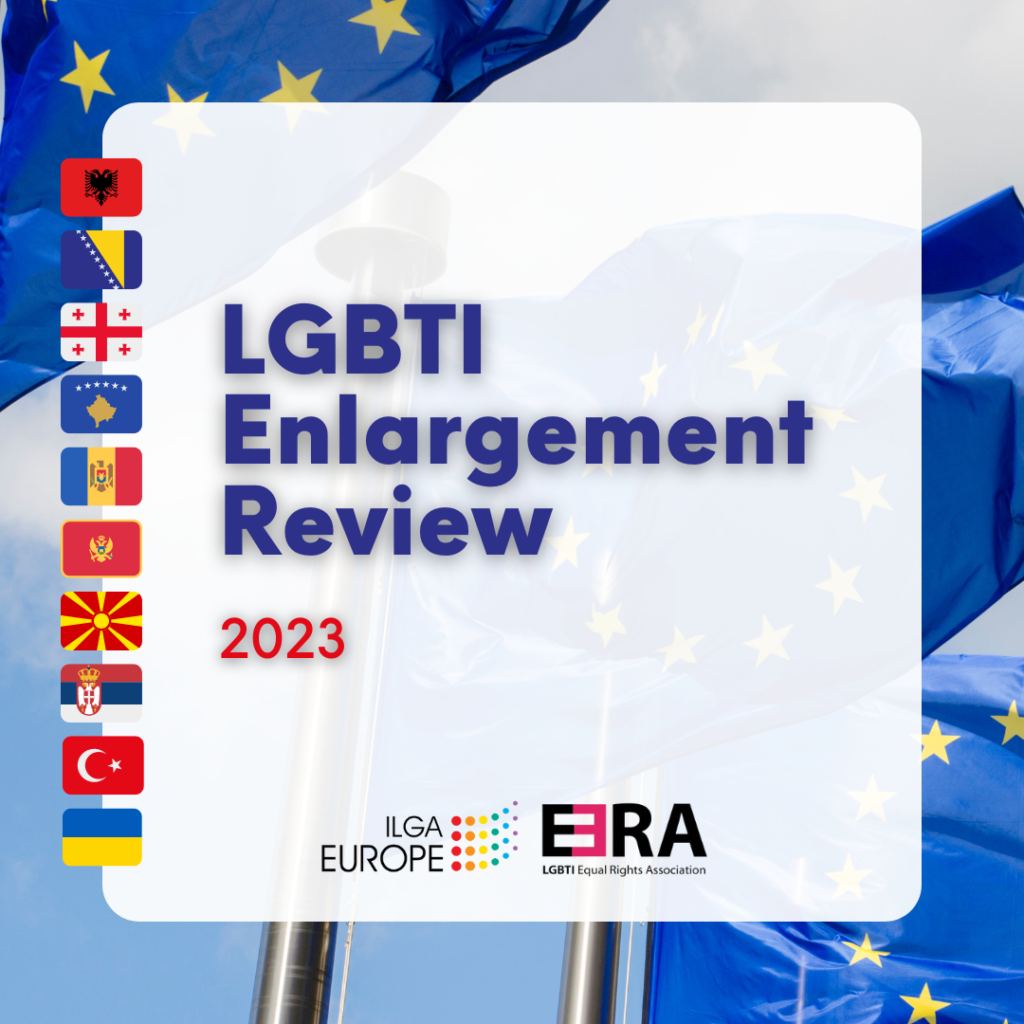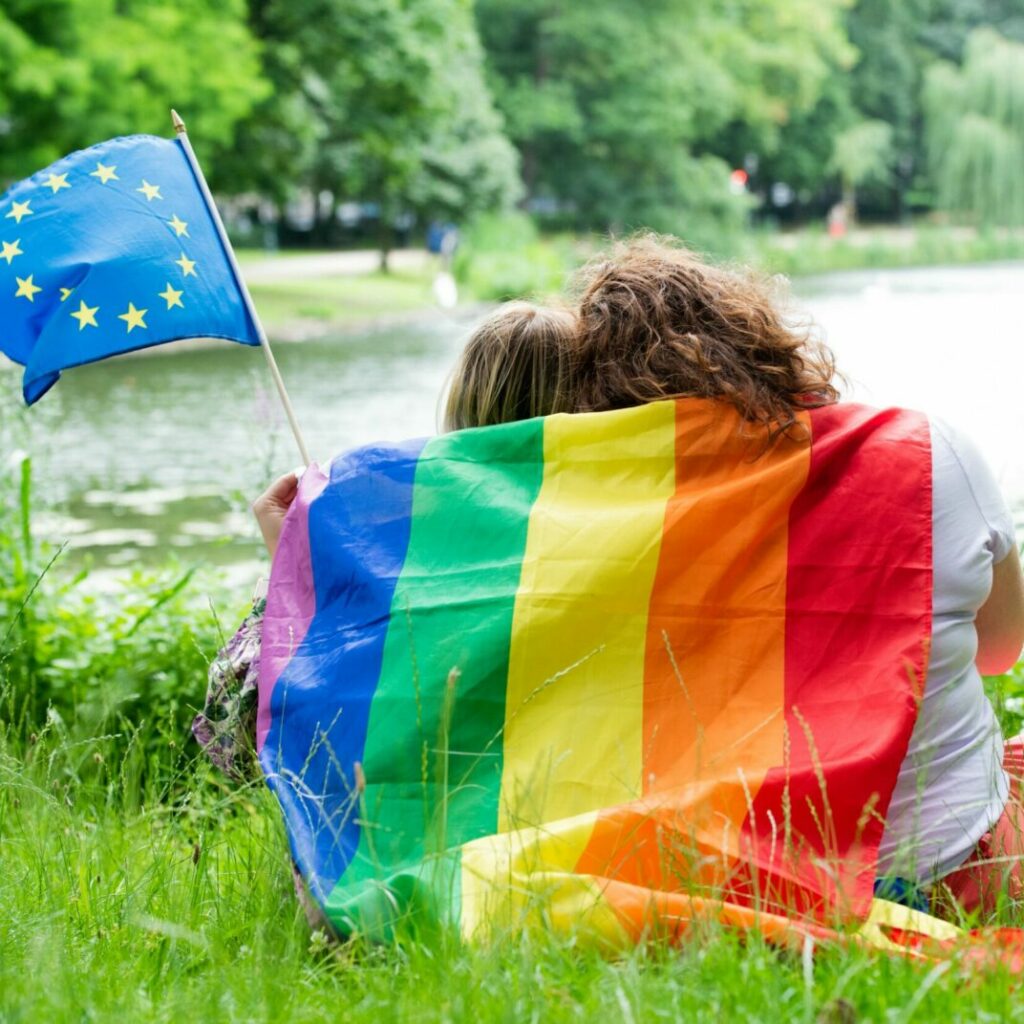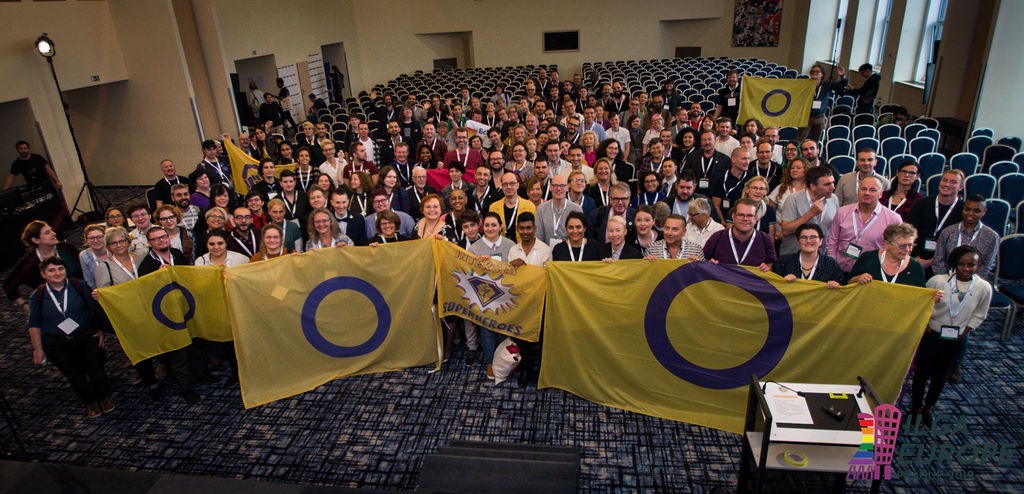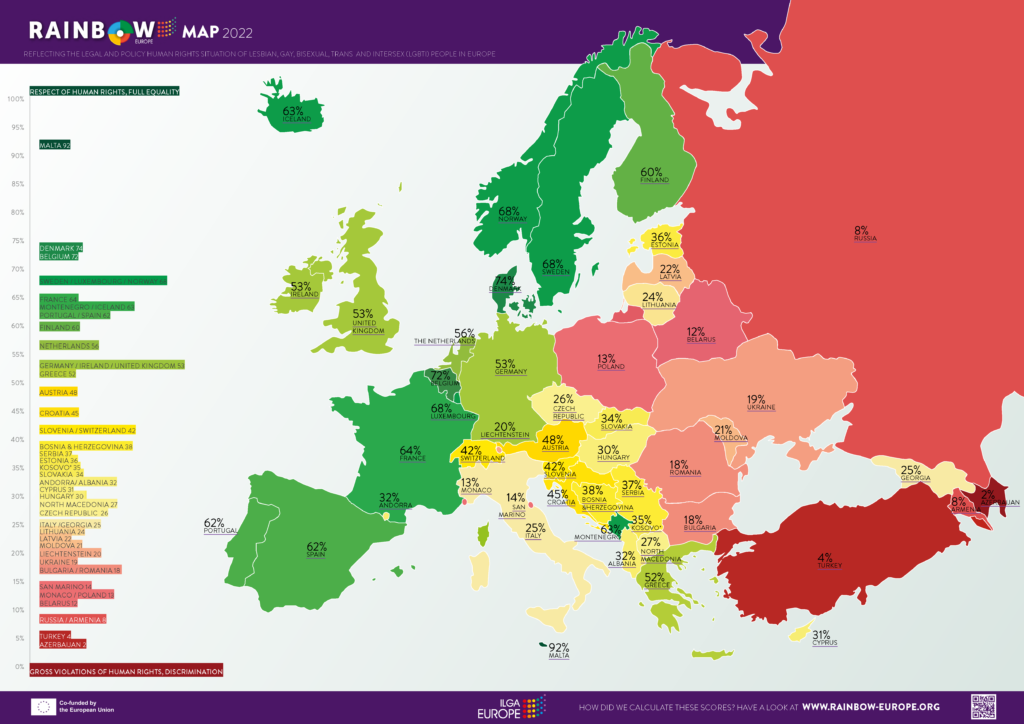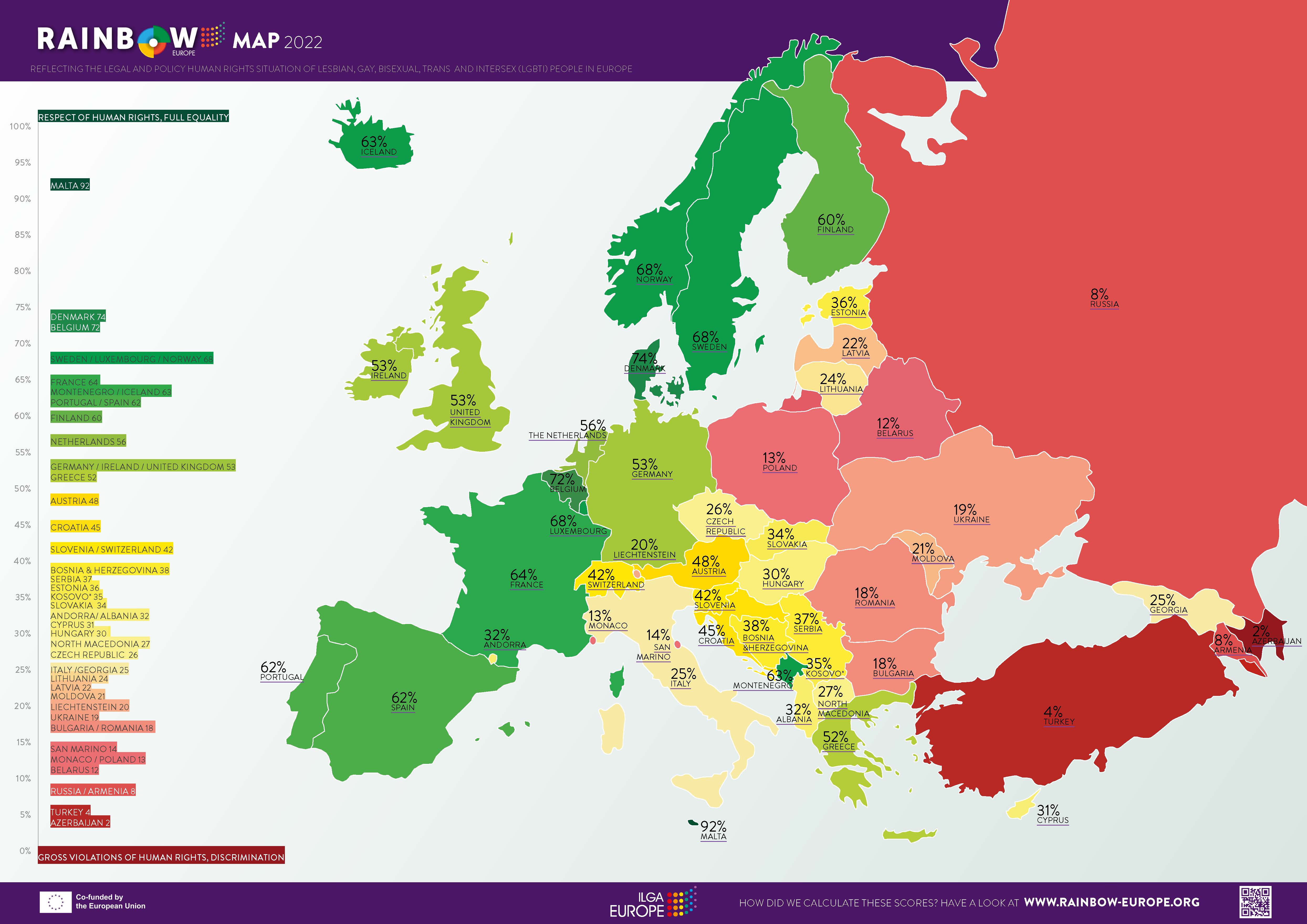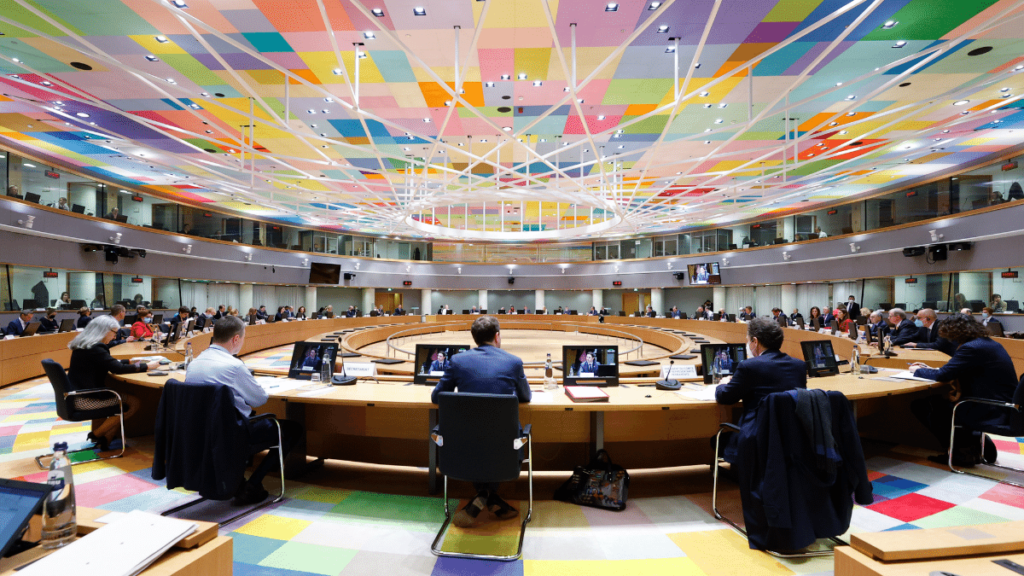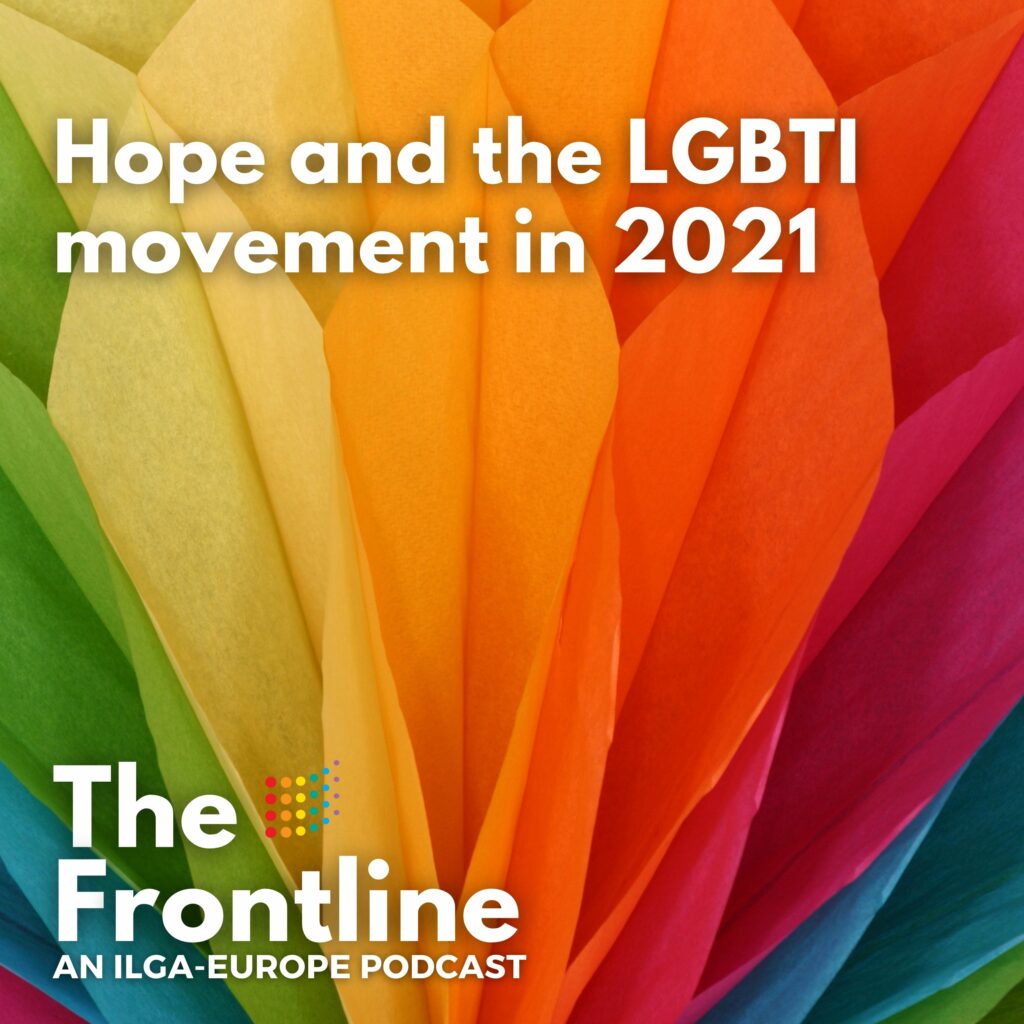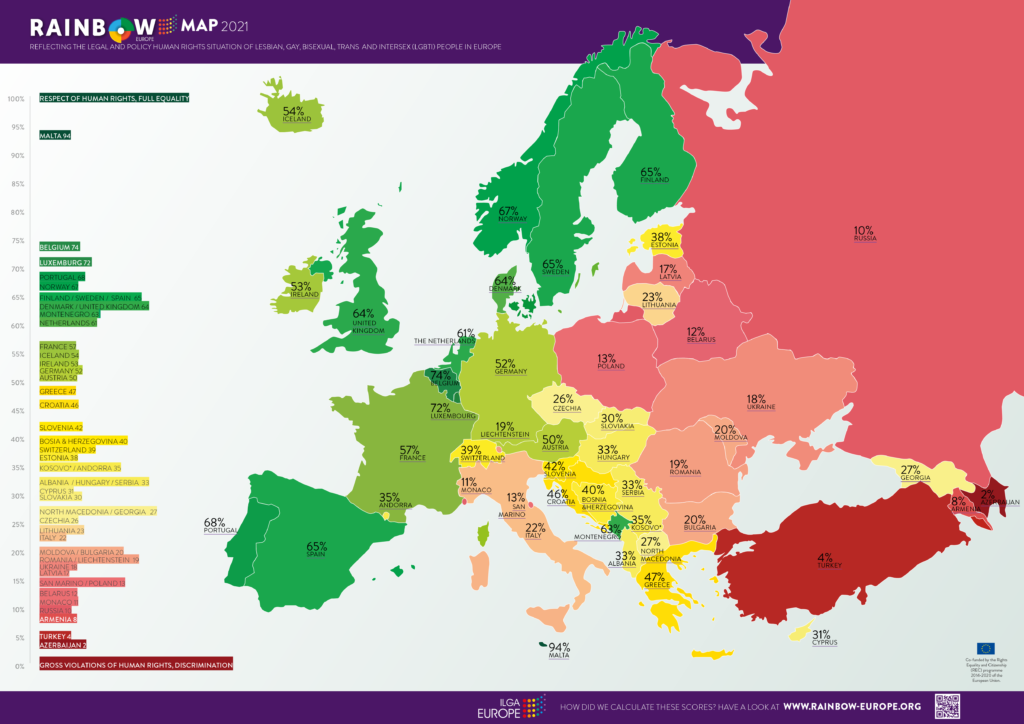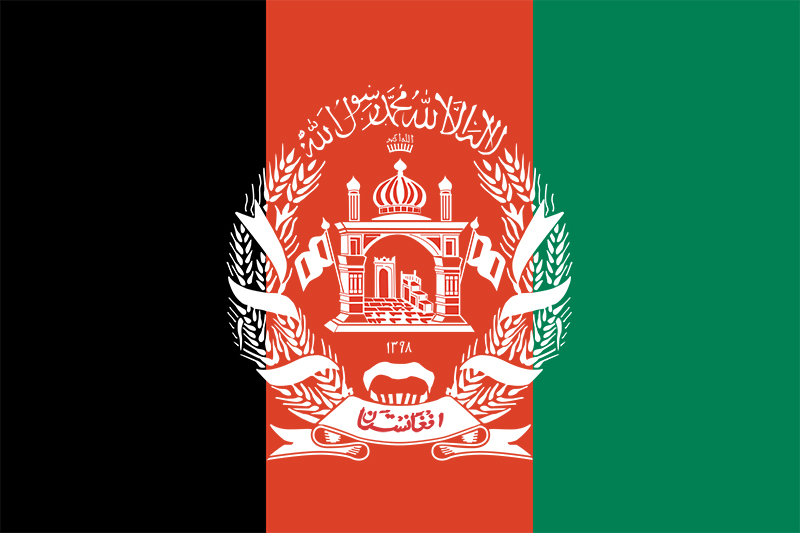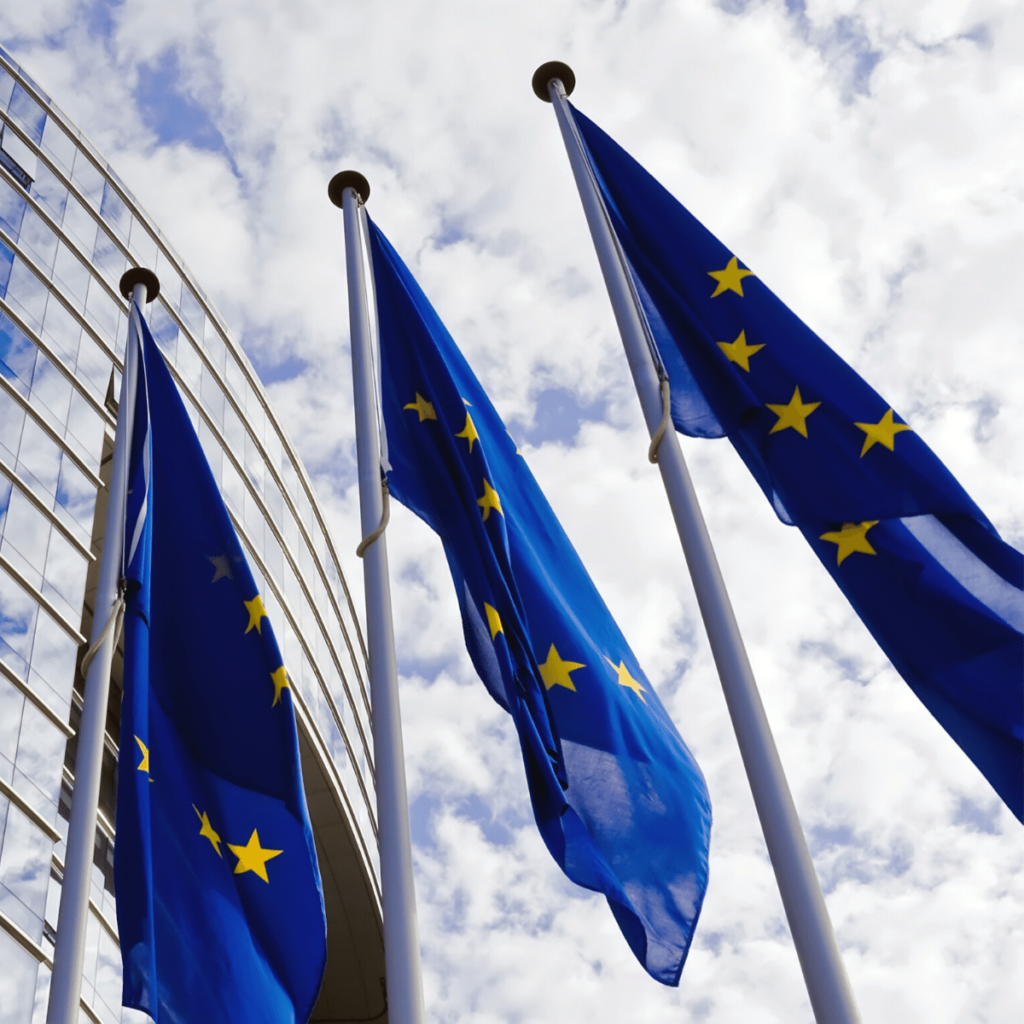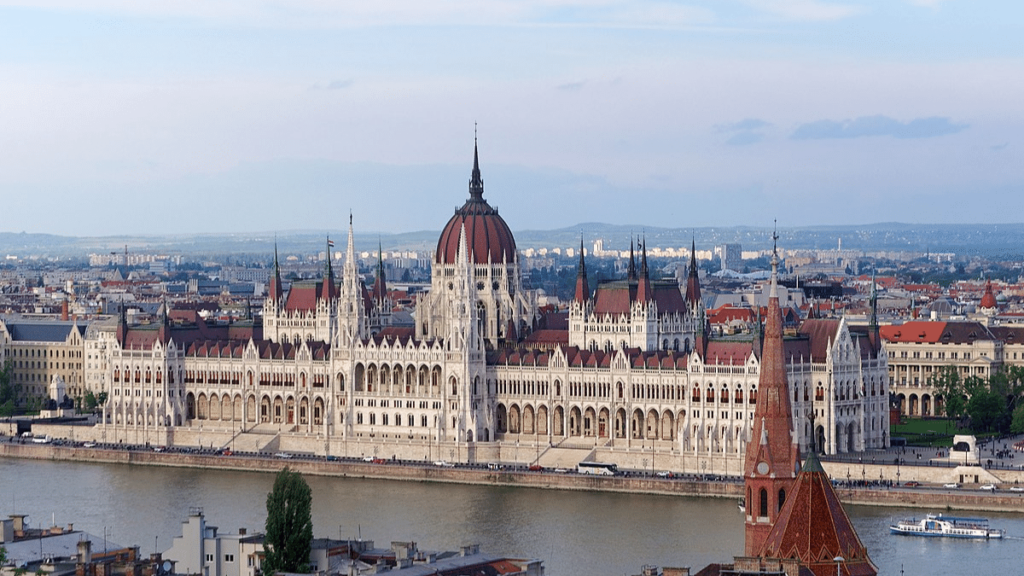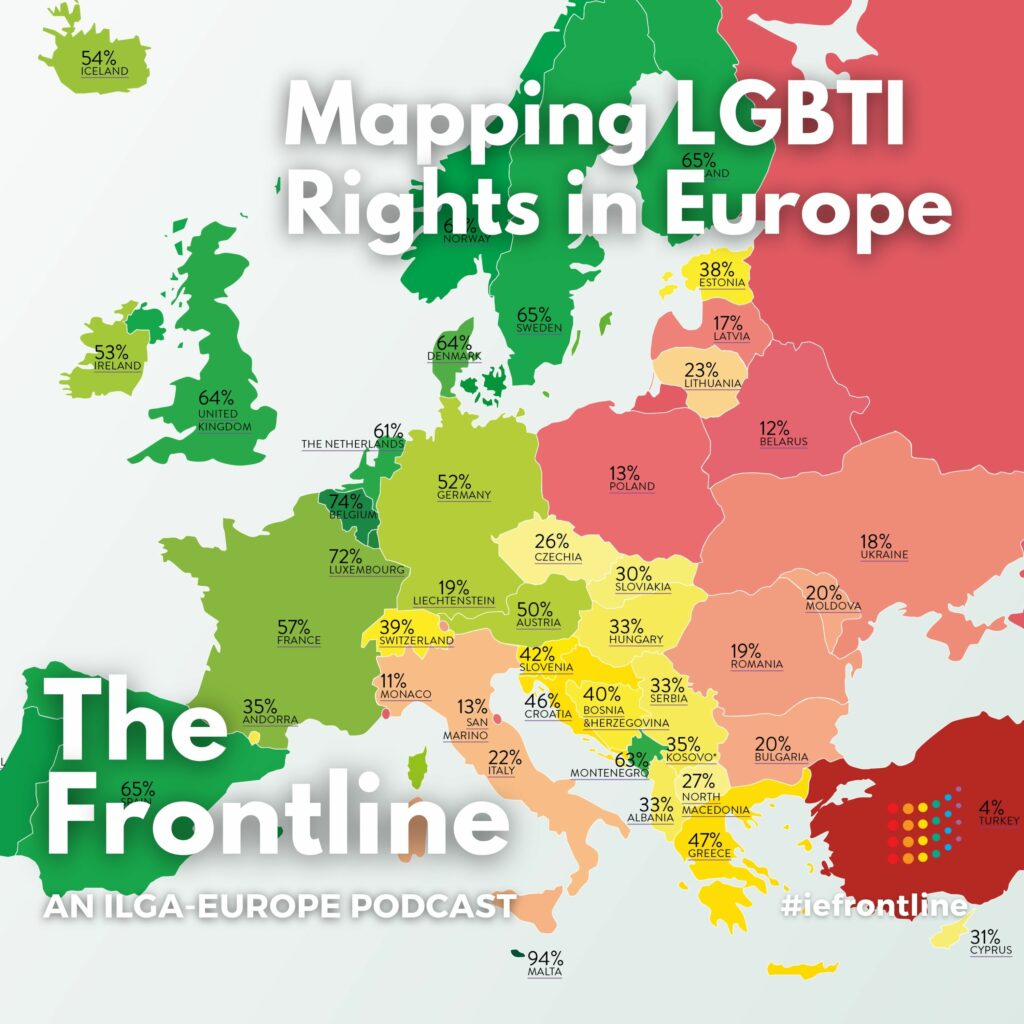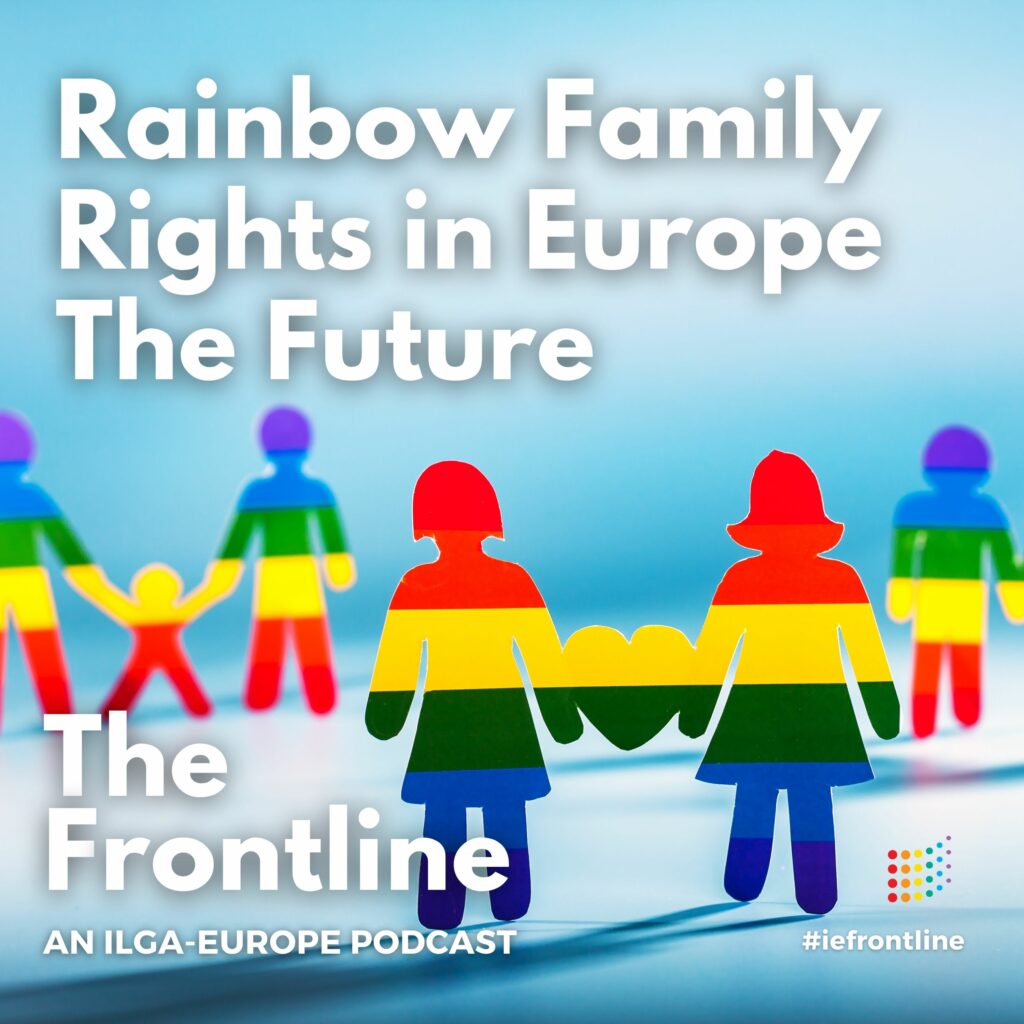Luxembourg
Categories Score
The full bar chart stands for 100%, and is filled by the country category score. The colour display uses the traffic light palette, with Green representing a score closer to 100% and Red a score closer to 0%.
ASYLUM
This category looks into laws that expressly include SOGISC as a qualification criteria for seeking asylum. We also take into account other legislation, policies, instruction or positive measures by state actors that are related to asylum addressing the needs and rights of LGBTI asylum seekers and refugees.
Criteria Compliance Ratio
Each pie charts stands for a category and is divided in slices by criteria. When a country complies with a criteria – fully or in some regions – the slice is coloured.
Keep in mind the criteria have different weighting factor within a category; for example, the criteria Prohibition of medical intervention without informed consent (intersex) stands for half (2.5%) of the INTERSEX BODILY INTEGRITY category weighting factor (5%). Meaning that even if a country can only comply with this specific criteria within the category (1/4 total criteria) the category scores 50%.
More information on the categories and criteria weighting factors here.
Category & Criteria Table
The table lists detailed information and insights on legislation supporting each criterion status. Please use the filters for in-depth analysis.
n/a = not applicable, meaning the criteria didn’t exist in the previous Rainbow Map edition (PROGRESSION column)
- Complies
- Applicable in some regions only
- Does not Comply
RECOMMENDATIONS
In order to improve the legal and policy situation of LGBTI people in Luxembourg, ILGA-Europe recommend:
- Allowing for automatic co-parent recognition for all couples, so that children born to couples, regardless of the partners’ sexual orientation and/or gender identity, do not face any barriers in order to be recognised legally from birth to their parents.
- Prohibiting medical interventions on intersex minors when the intervention has no medical necessity and can be avoided or postponed until the person can provide informed consent.
- Banning conversion practices on the grounds of sexual orientation and gender identity.
Annual Review of Luxembourg
In our Annual Review of the Human Rights Situation of LGBTI People in Europe and Central Asia, we examine the advances made and provide concrete examples of on-the-ground situations at national level country-by-country in the 12 months from January to December 2024.
Read our Annual Review of Luxembourg below for more details and stories behind the Rainbow Map. You can also download the Annual Review chapter (.pdf) covering Luxembourg.
-
In response to the European Parliament’s adoption of measures addressing the vulnerability of people in reception contexts based on their sexual orientation or gender expression, the Luxembourg Refugee Collective (LFR) released a press statement in April. The LFR emphasised the systemic failure to detect vulnerabilities early on, noting that individuals who have endured violations affecting their physical and psychological integrity often struggle to articulate their distress and trauma. The collective called for comprehensive initial and ongoing training for staff to enhance the identification of vulnerabilities and ensure that applicants for international protection receive appropriate care and procedural safeguards.
Since December 2023, all single men seeking asylum have been entitled to a vulnerability assessment interview, marking a significant step forward in addressing the needs of vulnerable individuals, including those based on sexual orientation or gender expression. In line with the ongoing reform of the European asylum system, the Office National de l’Accueil (ONA) has been working to improve current procedures. Centre LGBTIQ+ Cigale has been invited by the ONA to provide training on LGBTI issues to their staff and has continued training social workers at reception centres operated by the Luxembourg Red Cross, one of the most prominent organisations assisting asylum seekers.
-
In May, the drag character Tatta Tom was invited to give a reading at the Lycée technique agricole. Following the event, a member of parliament from the right-wing conservative party ADR harshly criticised the school’s invitation and the presence of queer topics in schools in general.
In July, a public petition (No. 3.198) calling for the exclusion of LGBTI themes from educational programmes for minors gained the support of over 9,000 people. In response, civil society organisations and individuals launched counter-petitions opposing the exclusion of LGBTI content. These were combined by the Luxembourg Parliament’s Petitions Commission into a single petition (No. 3281). The counter-petition quickly gained momentum, collecting 4,500 signatures on its first day and surpassing the anti-LGBTI petition within two weeks.
-
The Ministry of Family, Integration, and the Greater Region, in cooperation with the Centre LGBTIQ+ Cigale, the Centre for Equal Treatment, the Rosa Lëtzebuerg association, developed a guide to help bridge the gap between trans people and their employers. This guide equips employers with key information to better understand trans identities and implement inclusive policies, while also offering trans people support in communicating their needs within the workplace.
The Musée National de la Résistance et des Droits Humains opened the temporary exhibition “Vergessene Opfer. Victimes oubliées” with a panel discussion. The exhibition was dedicated to the fates of the forgotten victims of the Holocaust such as LGBTI people, people of colour, Sinti and Roma people, disabled people and Jehovah’s Witnesses.
-
In July, Luxembourg Pride marked its 25th anniversary, featuring a supporting programme with over 24 different activities.
The festival was attended by six members of the government, including Deputy Prime Minister Xavier Bettel and Minister for Equality and Diversity Yuriko Backes.
-
In April, the Ministry of Gender Equality and Diversity released an evaluation of Luxembourg’s national action plan on LGBTI rights. The evaluation highlighted progress but also notable hardships for trans and intersex people, as well as for the development of key legislation against conversion therapy. Furthermore, the evaluation underscored that representatives of LGBTI organisations noted challenges in monitoring the progress of the plan on LGBTI rights.
This year, the Ministry for Equality and Diversity provided financial support to three organisations through conventions. In June, support was granted to Intersex & Transgender Luxembourg (ITGL), followed by a commitment to queer-feminist film art in August for Queer Loox. Finally, in September, the Laboratoire d’Etudes Queer, sur le Genre et les Féminismes (LEQGF) received funding for their research on discrimination mechanisms.
-
During Pride Week, the President of the Luxembourg Parliament received the board of the National LGBTIQ+ Association Rosa Lëtzebuerg and the managing director of its Rainbow Centre to discuss the most pressing concerns of the LGBTI community in Luxembourg. The President of Parliament asked Rosa Lëtzebuerg to offer further training for the employees of the parliamentary administration over the next year.
-
In January, Rosa Lëtzebuerg’s Rainbow Centre published the first issue of the Queer.Lu print and online magazine with a launch event. The magazine is intended to be a platform for the LGBTI
community in Luxembourg to discuss activities, opinions and ideas. With the support of the Ministry for Equality and Diversity, the magazine is published quarterly and is available free of charge.
The national LGBTIQ+ action plan is currently being revised by the Ministry of Equality and Diversity (MEGA), with a strong focus on collaboration with civil society actors. MEGA has involved LGBTI associations across the country through working groups, ensuring diverse perspectives are included in the process.
The full Annual Review for 2025 is available here.



